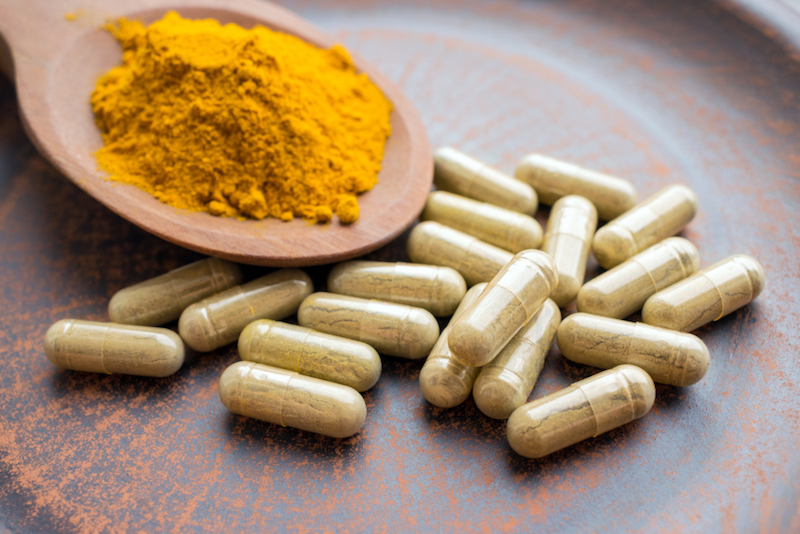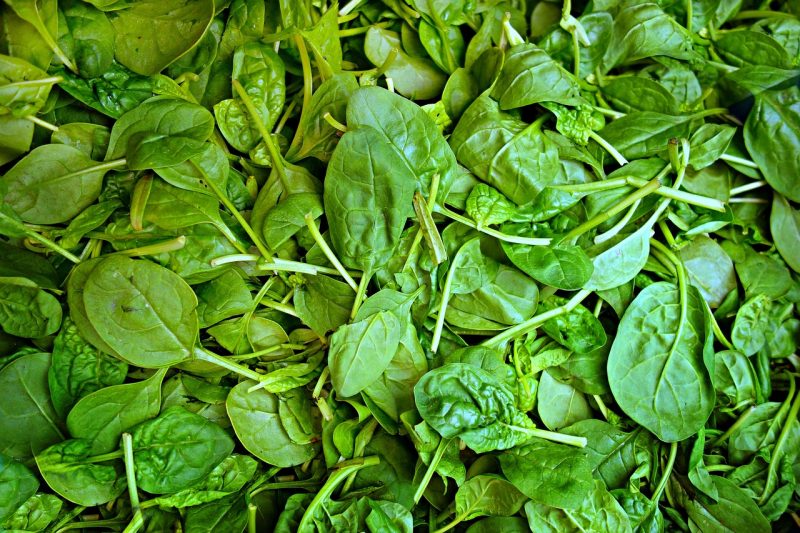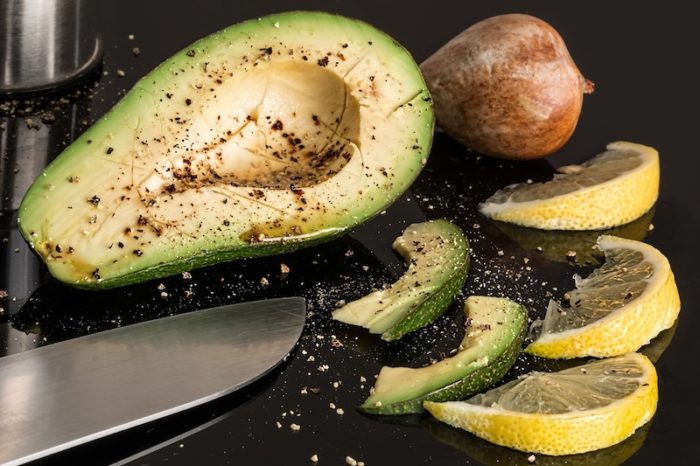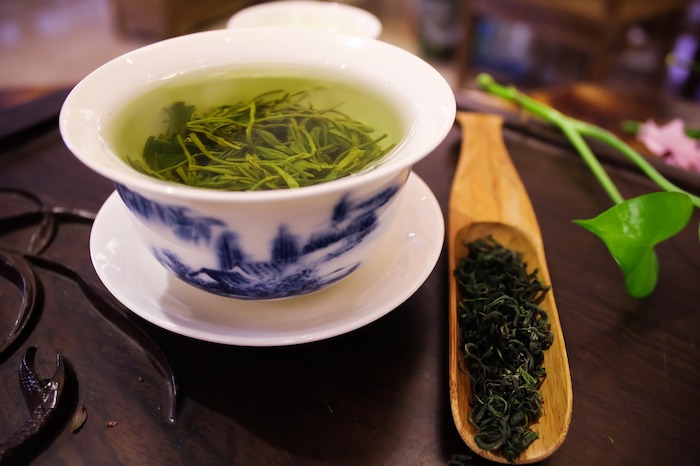Inflammation is a word that gets thrown around a lot, and it’s such a common phenomenon that it tends to get misused. Every other supplement “fights inflammation.” Sitting too much causes inflammation.(1) Processed food causes inflammation. Exercise causes inflammation.
Exercise causes inflammation?
There are a lot of myths here, so we’ve spoken to a registered dietitian and looked at dozens of studies to dive into what inflammation actually is, when it’s beneficial, and the best ways to beat it.
(Editor’s note: The content on BarBend is meant to be informative in nature, but it shouldn’t take the place of advice and/or supervision from a medical professional. The opinions and articles on this site are not intended for use as diagnosis, prevention, and/or treatment of health problems. Speak with your physician if you have any concerns.)

What Is Inflammation, Anyway?
- Inflammation is the body’s response to external stress
- Diet and lifestyle factors can lead to misdirected, ongoing inflammation, which is linked to several diseases
It’s a vital and normal response of the body’s immune system to external stress. When you bump your arm and it turns red and swollen, that’s inflammation. It’s a sign of the body sending white blood cells to the area to help protect you from infection, and you wouldn’t be able to heal without it.
But that’s not the only example of inflammation.
“A common example of system wide inflammation is a fever, that’s when your body temperature increases to help ward off bacteria and viruses that are making you sick,” says Hennis Tung, MS, RD, a New York-based dietitian and BarBend contributor. “In sports, damage caused to our muscles causes inflammation. So many people don’t realize that inflammation is necessary and can be beneficial.”
But there’s a darker side to it. There are degrees of inflammation: you know when you’re having a fever, but you might not know when you’re experiencing chronic, lower level inflammation, which can be caused by smoking, poor dietary habits, too much alcohol, insufficient sleep, inactivity, and poor sleep.(2)(3)(4)

It’s extremely impactful, though. The World Health Organization ranks chronic inflammatory diseases as the most significant cause of death in the world, as strokes, cancer, diabetes, and a host of other conditions have their roots in inflammation, among other factors.(5) Harvard Medical School even published an article that said,
The four horsemen of the medical apocalypse — coronary artery disease, diabetes, cancer, and Alzheimer’s — may be riding the same steed: inflammation.
Inflammation is an overstimulated immune system and it can result in the body attacking its own cells. While arthritis is one common example (more than 12 percent of American adults have some form of it), many people have inflammation levels that are so low that it needs to be detected by a rise in immune system markers found in blood or tissue.
This makes it hard to tell how many people have chronic inflammation, but we do know that it’s something that should be minimized. Not only can it lead to disease, but chronic inflammation can impede performance, recovery, healing, sleep, immunity, joint mobility, and overall strength.
Antioxidants and Inflammation
- Antioxidants protect against substances that damage healthy tissue
- Plant-based whole foods are the best sources of antioxidants
Again, regular exercise, not too much alcohol, and managing your stress and sleep go a long way to helping with inflammation. (Even meditation has been shown to have an effect.)(6)
When it comes to foods, a lot of emphasis is put on antioxidants.
“Antioxidants are compounds in foods that can protect cells by fighting against free radicals, and that’s important because free radicals are known to cause cellular damage that leads to the progression of a lot of diseases,” says Tung.
Research has suggested that consuming plenty of antioxidants can help to reduce chronic inflammation by protecting against oxidants and cytokines, which are produced by the immune system and can damage healthy tissue.(7)
Consuming plenty of antioxidants can help to reduce chronic inflammation by protecting against oxidants and cytokines, which are produced by the immune system and can damage healthy tissue
“The main source of antioxidants is plant based foods — a lot of these plants have what’s called phytochemicals, a group of compounds that provide a lot of the tastes and colors in fruits and vegetables,” says Tung. ”For example beta carotene in carrots, or a flavonoid in an apple. So these compounds have been shown to be beneficial in fighting off a lot of diseases.”
Not all vitamins and minerals are antioxidants, but Vitamin C and Vitamin E are probably the best known. But studies have found the minerals copper, zinc, and selenium to act as antioxidants as well as the amino acids taurine, methionine, and cysteine.(8)
Dozens of other compounds that don’t fall into the category of “vitamin” or “mineral,” like anthocyanins and isoflavonoids, also work in this capacity. Rather than list every single antioxidant, it may be more useful to focus on foods.
[Keep your nutrition on point with our guide to the best multivitamins for men!]
Best Foods for Inflammation
Almost every whole food, especially those from plants, contain antioxidants and anti-inflammatory compounds, but here are some especially dense sources are worth highlighting.
1. Berries
Blueberries get a lot of hype for good reason: they contain more antioxidants and more types of antioxidants than blackberries or strawberries.(9) That said, all berries are great for inflammation and are high in antioxidants called anthocyanins, which are strongly linked to disease prevention.(10)(11)
2. Leafy Greens
Kale, broccoli, spinach, cabbage, Brussels sprouts, cauliflower, and bok choy are all in the same family and one of them should make its way to your plate every day. They’re full of anti-inflammatory compounds like sulforaphane, which has been seen to decrease your cytokines.(12)
3. Fatty Fish
They’re full of Omega-3 fatty acids, which have strong links to lower levels of inflammation because the body metabolizes them into inflammation fighting compounds called protectins and resolvins.(13) Studies have found folks who eat plenty of salmon and Omega-3s experienced decreases in inflammatory markers like C-reactive protein (CRP).(14)
[Fight inflammation with our list of the best Omega-3 supplements!]
4. Avocados
Not just a great source of vitamins and minerals, it’s full of beneficial compounds like tocopherols and carotenoids. The effect on inflammation was seen in a study that showed lower levels of inflammatory markers among folks who had a burger with avocado versus those who skipped the guac.(15)
5. Mushrooms
Often maligned as not that nutritious, they’re actually good sources of the antioxidants selenium and copper, plus numerous studies have linked them to anti inflammatory effects.(16)(17)(18)
6. Tomatoes
Not just extraordinarily high in Vitamin C, tomatoes (as well as watermelons) are very high in the antioxidant lycopene, which has well researched anti inflammatory and anti-carcinogenic properties.(19)(20)
7. Tea
Tea is packed with antioxidants, in particular catechins like EGCG, which have also been linked to fat loss.
8. Coffee
Research published in the American Journal of Clinical Nutrition found that habitual coffee drinking has beneficial effects on subclinical inflammation.(21) It’s worth remembering that too much caffeine might keep your body in a sympathetic state, which might increase inflammation — so don’t guzzle all day every day.
9. Olive Oil
One phenolic compound found in olive oil, called oleocanthal, has been compared in some studies to the anti-inflammatory medication ibuprofen and research has found it to decrease inflammatory markers like CRP.(22)(23) Indeed, the liberal use of olive oil is one reason why Mediterranean diets are consistently linked to low levels of inflammation.

Natural Supplements for Inflammation
1. Omega-3
We’ve already mentioned fatty fish, but you can pick up Omega-3 in a pill if you don’t have a lot of fish in your diet. Note that wild caught fish tend to be a better source, but just read the label and look for products with at least 250 milligrams of EPA and DHA.
2. Curcumin
Getting 150 milligrams to 2 grams of curcumin, the active ingredient in turmeric, has been since in multiple studies to reduce inflammation from exercise.(24)(25)
[Read more in our guide to curcumin for athletes!]
3. Ginger
Another common ingredient in Indian food, one to two grams of ginger has been seen in some studies to reduce CRP and decrease soreness from exercise.(26)(27)

4. CBD
It’s brand new to the market, but promising research suggests that cannabidiol exerts significant anti-inflammatory benefits, with most studies suggesting a dose between 20 and 300 milligrams taken orally.(28)(29)(30) Start small and work your way up, but talk to a doctor before trying any of these methods.
[What about anxiety? Learn more about the benefits of CBD.]
5. Spirulina
Common in greens powders, one to eight grams of this blue-green algae per day has been seen in some research to reduce inflammatory markers, such as MDA.(31)
Wrapping Up
That said, it’s better to focus on getting a broad spectrum of foods — including a lot of plants — than to focus on any one of them.
“Generally I would say, I wouldn’t want to isolate or solely depend on one kind of food but I always try to encourage a dietary pattern that’s high in fruits, vegetables, whole grains, and legumes,” says Tung.
The bottom line is that if you want to manage inflammation it’s smart to get sleep, manage stress, exercise regularly, avoid processed food and eat a lot of plants, herbs, spices, and Omega-3 fatty acids. Above all, talk to your doctor if you’re concerned about inflammation.
Featured image via djile/Shutterstock
References
1. Yates T, et al. Self-reported sitting time and markers of inflammation, insulin resistance, and adiposity. Am J Prev Med. 2012 Jan;42(1):1-7.
2. Minihane AM, et al. Low-grade inflammation, diet composition and health: current research evidence and its translation. Br J Nutr. 2015 Oct 14;114(7):999-1012.
3. Simpson RJ, et al. Exercise and the Regulation of Immune Functions. Prog Mol Biol Transl Sci. 2015;135:355-80.
4. Rohleder N. Stimulation of systemic low-grade inflammation by psychosocial stress. Psychosom Med. 2014 Apr;76(3):181-9.
5. Pahwa R et al. Chronic Inflammation. Treasure Island (FL): StatPearls Publishing; 2019 Jan-.
6. Black DS, et al. Mindfulness meditation and the immune system: a systematic review of randomized controlled trials. Ann N Y Acad Sci. 2016 Jun;1373(1):13-24.
7. Arulselvan P, et al. Role of Antioxidants and Natural Products in Inflammation. Oxid Med Cell Longev. 2016;2016:5276130.
8. Grimble RF. Nutritional antioxidants and the modulation of inflammation: theory and practice. New Horiz. 1994 May;2(2):175-85.
9. Huang WY, et al. Survey of antioxidant capacity and phenolic composition of blueberry, blackberry, and strawberry in Nanjing. J Zhejiang Univ Sci B. 2012 Feb;13(2):94-102.
10. McAnulty LS, et al. Effect of blueberry ingestion on natural killer cell counts, oxidative stress, and inflammation prior to and after 2.5 h of running. Appl Physiol Nutr Metab. 2011 Dec;36(6):976-84.
11. Joseph SV, et al. Berries: anti-inflammatory effects in humans. J Agric Food Chem. 2014 May 7;62(18):3886-903.
12. Guerrero-Beltrán CE, et al. Protective effect of sulforaphane against oxidative stress: recent advances. Exp Toxicol Pathol. 2012 Jul;64(5):503-8.
13. Weylandt KH, et al. Omega-3 fatty acids and their lipid mediators: towards an understanding of resolvin and protectin formation. Prostaglandins Other Lipid Mediat. 2012 Mar;97(3-4):73-82.
14. Grimstad T, et al. Salmon diet in patients with active ulcerative colitis reduced the simple clinical colitis activity index and increased the anti-inflammatory fatty acid index–a pilot study. Scand J Clin Lab Invest. 2011 Feb;71(1):68-73.
15. Li Z, et al. Hass avocado modulates postprandial vascular reactivity and postprandial inflammatory responses to a hamburger meal in healthy volunteers. Food Funct. 2013 Feb 26;4(3):384-91.
16. Elsayed EA, et al. Mushrooms: a potential natural source of anti-inflammatory compounds for medical applications. Mediators Inflamm. 2014;2014:805841.
17. Ganeshpurkar A, et al. Experimental evaluation of analgesic and anti-inflammatory potential of Oyster mushroom Pleurotus florida. Indian J Pharmacol. 2013 Jan-Feb;45(1):66-70.
18. Gunawardena D, et al. Anti-inflammatory effects of five commercially available mushroom species determined in lipopolysaccharide and interferon-γ activated murine macrophages. Food Chem. 2014 Apr 1;148:92-6.
19. Ip BC, et al. Non-alcoholic steatohepatitis and hepatocellular carcinoma: implications for lycopene intervention. Nutrients. 2013 Dec 27;6(1):124-62.
20. Trejo-Solís C, et al. Multiple molecular and cellular mechanisms of action of lycopene in cancer inhibition. Evid Based Complement Alternat Med. 2013;2013:705121.
21. Kempf K, et al. Effects of coffee consumption on subclinical inflammation and other risk factors for type 2 diabetes: a clinical trial. Am J Clin Nutr. 2010 Apr;91(4):950-7.
22. Lucas L, et al. Molecular mechanisms of inflammation. Anti-inflammatory benefits of virgin olive oil and the phenolic compound oleocanthal. Curr Pharm Des. 2011;17(8):754-68.
23. Casas R, et al. The effects of the mediterranean diet on biomarkers of vascular wall inflammation and plaque vulnerability in subjects with high risk for cardiovascular disease. A randomized trial. PLoS One. 2014 Jun 12;9(6):e100084.
24. Drobnic F, et al. Reduction of delayed onset muscle soreness by a novel curcumin delivery system (Meriva®): a randomised, placebo-controlled trial. J Int Soc Sports Nutr. 2014 Jun 18;11:31.
25. Nicol LM, et al. Curcumin supplementation likely attenuates delayed onset muscle soreness (DOMS). Eur J Appl Physiol. 2015 Aug;115(8):1769-77.
26. Arablou T, et al. The effect of ginger consumption on glycemic status, lipid profile and some inflammatory markers in patients with type 2 diabetes mellitus. Int J Food Sci Nutr. 2014 Jun;65(4):515-20.
27. Hoseinzadeh K, et al. Acute effects of ginger extract on biochemical and functional symptoms of delayed onset muscle soreness. Med J Islam Repub Iran. 2015 Sep 12;29:261.
28. Burstein S. Cannabidiol (CBD) and its analogs: a review of their effects on inflammation. Bioorg Med Chem. 2015 Apr 1;23(7):1377-85.
29. Philpott HT, et al. Attenuation of early phase inflammation by cannabidiol prevents pain and nerve damage in rat osteoarthritis. Pain. 2017 Dec;158(12):2442-2451.
30. Hammell DC, et al. Transdermal cannabidiol reduces inflammation and pain-related behaviours in a rat model of arthritis. Eur J Pain. 2016 Jul;20(6):936-48.
31. Lee EH, et al. A randomized study to establish the effects of spirulina in type 2 diabetes mellitus patients. Nutr Res Pract. 2008 Winter;2(4):295-300.



